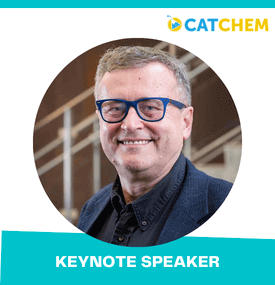
Stefan Vajda
J. Heyrovský Institute of Physical Chemistry Czech Academy of Sciences, Czech Republic
Size-Selected Clusters: From Heterogenous Catalysis to Electrocatalysis and Li-O2 Batteries
Biography
Stefan Vajda is currently the head of the recently established Department of Nanocatalysis of the J. Heyrovský Institute of Physical Chemistry of the Czech Academy of Science located in Prague. He is also the ERA Chair holder at the Institute. Stefan pioneered the studies of atomically precise size- and composition selected subnanometer size cluster-based catalyst under realistic reaction conditions of temperature and pressure in industrially relevant processes. Stefan received his Diploma (MSc) degree in Physical Chemistry and his PhD in Chemistry from Charles University in Prague, and habilitated from Experimental Physics at the Freie Universität Berlin. His awards include a Fulbright Fellowship spent at the University of Chicago. Before returning to Prague in 2019, Stefan was active at the Freie Universität Berlin and Argonne National Laboratory US. During his career, Stefan published over 120 peer-reviewed articles and book chapters, has 7 issued US patents and presented over 80 invited talks at international conferences.
Abstract
In this presentation, we will provide an overview of recent results which emerged from the studies of the performance of supported size-selected clusters in a variety of reactions, from heterogeneous to electrochemical and batteries, discussing the effect of cluster size and composition along the role of the support and reaction conditions. While the main focus of the paper will be on (electro)catalysts made of monodisperse subnanometer clusters, unexpected propensities of under reaction conditions dynamically formed nanoassemblies will be discussed as well. In the last part of the paper, as time shall allow, we will highlight the opportunities provided by atomic precision design of bimetallic clusters in fine-tuning their performance and their bifunctionality in industrially relevant reactions.